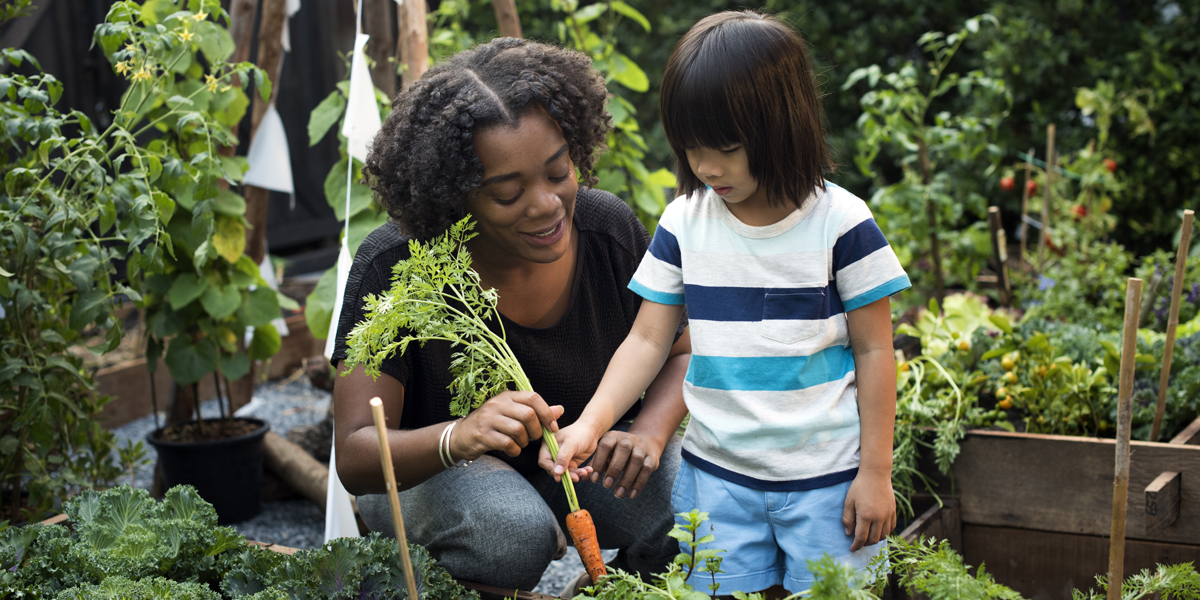Georgia Commute Options is all about finding better ways of getting around that help us do good for ourselves and our environment – like taking clean commutes such as biking, walking, ridesharing and taking transit.
As we prepared to celebrate the 10th anniversary #Biketober challenge and getting more people riding bikes instead of driving, we caught up with Dr. Yolanda Whyte, a metro Atlanta pediatrician and environmental health advocate with the EPA’s Children’s Health Protection Advisory Committee, to hear what she has to say about environmental pollution, health and the steps we can take to protect our overall well-being.
GCO: What inspired you to become an environmental health advocate?
Dr. Whyte: It was seeing the rise of children with chronic medical conditions that were environment-related. When I attended medical school In the ‘90s, most kids came to see me for accidents and injuries and minor conditions like pink eye and colds. Ten years later, I started to see more and more children coming in with those same minor conditions but who also have autism, developmental disabilities, asthma and behavior problems. So I expanded my practice to include environmental health and advocacy.
GCO: You call environmental pollution the No. 1 threat to public health. Why?
Dr. Whyte: Toxic chemicals are hidden in our food, water and air. The proof already exists that we’ve been affected. The CDC has been doing biomonitoring for decades and has found heavy metals in our blood and urine. Other studies have detected them in umbilical cord blood as well. Heavy metals, like lead found in the drinking water in Flint, Michigan, are neurotoxic. They cross the blood-brain barrier and contribute to neurodevelopmental problems like autism, speech and developmental delays. Toxic chemical exposures can also lead to disease clusters. For many residents in these communities, there’s little relief outside of relocation.
Primary care providers are usually the first line of care for patients with health concerns including environmental, but of all the areas medical doctors are trained on, environmental pollution is least. It deserves its own formal training and specialty.
GCO: Does environmental pollution impact everyone equally?
Dr. Whyte: No. From traffic to agriculture to construction, communities of color are often located closer to point sources of pollution and are disproportionately exposed to environmental pollutants, including chemical plants and landfills. This explains why black children experience significantly higher rates of asthma. Residents of these communities also disproportionately bear the cost burden of pollution and are less able to afford remedies, such as weatherization, dehumidifiers and water and air purifiers.
GCO: In the midst of climate change, it’s hard to feel like we as individuals can move the needle. What can we do to change environmental pollution?
Dr. Whyte: Our individual actions definitely can make a difference. We can start by taking steps to become more self-sustaining. Growing your own food and eating less beef (and meat in general) helps reduce pollution and improve the condition of our climate. There are many ways we can reduce, reuse and recycle to cut down on waste – including reducing our consumerism, or buying things we don’t need like new clothes. We can also save money and resources by being more conservative with our habits at home, being careful with our water and energy usage, and by upgrading old appliances. Taking public transportation, and spending more time walking and in nature, not only helps cut down on air pollution but has other health benefits, like getting vitamin D and relaxing.
Finally, we can use our individual power to vote. We can get on email lists of local environmental groups, receive updates, sign petitions and letters, and weigh in on issues, whether at a town hall or by phone—this is the core of advocacy and one of the most important things we can do.
Resources to Reduce Environmental Toxins
Dr. Whyte reminds us that we all deserve to breathe fresh air, drink and bathe in clear, clean water and eat nutrient-rich foods. Here are a few resources that can help you put some of this into action.
Ways to use less water at home
Tips for outdoor and indoor water use, as well as energy-efficient appliances, that save time, money and natural resources.
Atlanta local food initiative
Access to fresh, local food improves our diet and the health of our communities. This plan for metro Atlanta’s sustainable food future is also full of resources and links for further reading.
Community gardening manual
This guide has tons of information for anyone interested in learning how to start or participate in a community garden as well as its benefits.
